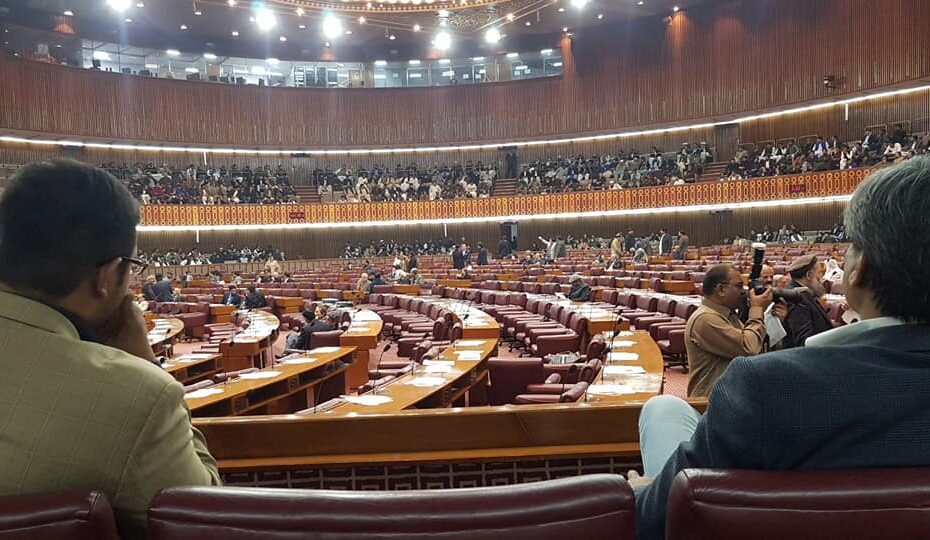By Tahir Hussain
Pakistan Introduces Landmark 26th Constitutional Amendment: Federal Constitutional Court, Environmental Rights, and Judicial Reforms
Islamabad, in a sweeping legislative move, Pakistan has introduced a bill for the 26th Amendment to its Constitution, ushering in significant changes across judicial, environmental, and governance sectors. The amendment, yet to be approved by a large majority in both houses of Parliament, proposes a Federal Constitutional Court, strengthens environmental protection, and implements key reforms in judicial appointments and governance.
Federal Constitutional Court: A New Judicial Powerhouse
One of the most notable provisions of the 26th Amendment is the establishment of the Federal Constitutional Court (FCC), which will now serve as the highest body for constitutional review in the country. The court’s creation marks a historic shift in Pakistan’s judicial system, as it will handle cases previously under the jurisdiction of the Supreme Court concerning constitutional matters, including fundamental rights, governance disputes, and judicial appointments.
The FCC is expected to handle intergovernmental disputes between the federal and provincial governments and issue binding rulings on the interpretation of the Constitution. All pending cases under the Supreme Court’s jurisdiction that pertain to constitutional issues will be transferred to the FCC. This move effectively creates a specialized court focused solely on constitutional questions, potentially expediting decisions on critical governance and legal matters.
The appointment process for FCC judges, as outlined in the amendment, involves a commission consisting of senior judges from both the FCC and the Supreme Court, the federal law minister, and the attorney general. In a nod to political inclusivity, the commission will also include representatives from both houses of Parliament, nominated by the ruling party and the opposition.
Judicial Reforms: Strengthening Accountability and Oversight
The amendment introduces sweeping reforms in judicial oversight, including performance evaluations for judges. For the first time, Pakistan’s Constitution mandates annual performance reviews for high court judges, with provisions allowing the Supreme Judicial Council to address judges whose performance is deemed unsatisfactory. These reforms aim to enhance accountability and transparency within the judiciary, an institution that has faced criticism in the past for its lack of oversight.
Another key change relates to the tenure of the Chief Justice of Pakistan, which is now capped at three years, ensuring regular leadership rotation in the country’s top judicial positions. The retirement age for the Chief Justice of the Supreme Court remains set at 65, a standard benchmark for many judicial systems globally. As for judges of the Federal Constitutional Court, the retirement age has been set at 68.
Expanding Environmental Rights
In a progressive move, the amendment introduces Article 9A, which enshrines the right to a clean, healthy, and sustainable environment for every citizen of Pakistan. While the Supreme Court previously has affirmed that the constitutional right to dignity provided under Article 14 includes the right to a healthy environment (Shehla Zia case), this right has now been given a separate constitutional footing. This addition marks a significant shift in the country’s constitutional framework, bringing it in line with international norms on environmental protection and sustainability.
The inclusion of environmental rights in the Constitution is being hailed as a victory by environmental activists, as Pakistan grapples with increasing pollution, water scarcity, and the devastating effects of climate change. By embedding this right in the Constitution, the government is legally obligated to take action against environmental degradation, offering citizens a powerful tool to hold the state accountable for environmental policy failures.
Changes to Voting Rules and Executive Immunity
Amendments to Article 63A aim to provide clarity on parliamentary voting rules, particularly in cases where a member votes against their party’s directive. Under the revised provisions, even votes cast contrary to a party line will now be officially counted, underscoring the autonomy of individual members within Pakistan’s parliamentary system.
In a controversial provision, the amendment also bolsters presidential immunity, stating that advice provided by the Cabinet to the President cannot be challenged in any court. Critics argue that this provision could potentially shield the executive from necessary judicial scrutiny, while supporters maintain it is essential for ensuring stability and decisiveness in governance.
Broader Implications for Governance
The 26th Amendment also introduces new protocols for the reappointment and extension of armed forces personnel, a sensitive topic in Pakistan’s political landscape, where civil-military relations have historically been fraught. The amendment clarifies that such appointments will now be governed strictly by laws pertaining to the armed forces, providing a clear legal framework for future decisions.
Additionally, the fourth schedule of the Constitution has been updated to give local governments greater fiscal autonomy, particularly in the collection of local taxes, fees, cess charges, and tolls. This move is expected to strengthen local governance by giving municipalities more financial control and accountability in their jurisdictions.
A Transformative Shift in Pakistan’s Constitutional Framework
The 26th Amendment represents a comprehensive overhaul of several key aspects of Pakistan’s governance and judicial systems. The establishment of the Federal Constitutional Court and the inclusion of environmental rights are being lauded as progressive steps toward modernizing Pakistan’s legal framework. However, the expansion of presidential immunity and potential challenges in judicial performance reviews remain points of debate among legal experts and political commentators.
As Pakistan continues to navigate its complex legal and political landscape, the 26th Amendment sets the stage for new constitutional interpretations, judicial reforms, and an expanded role for the judiciary in ensuring accountability in governance.
This landmark amendment is expected to have long-lasting implications for the country, potentially reshaping the separation of power among its legislative, executive, and judicial branches for years to come.
The writer is a lawyer at Islamabad High Court, an LLM scholar at Bahria University Islamabad, and the Secretary General of the Gilgit Baltistan Lawyers Forum, Islamabad. He can be contacted on Twitter @anchantahir.
Skardu.pk is one of the leading authentic news and information platform focusing on adventure tourism, regional and world affairs.

